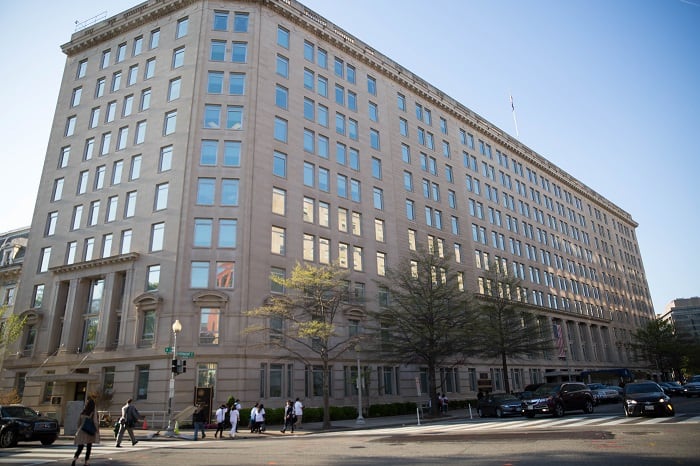Marine Lt. Gen. Thomas Waldhauser has been nominated to become the next commander of U.S. Africa Command.
If confirmed by the Senate, Waldhauser would get his fourth star and replace Army Gen. David Rodriguez, who has commanded AFRICOM since April 2013.
Defense Secretary Ashton Carter congratulated Waldhauser for being nominated to lead the command.
"Over the course of his three decades as a Marine, including service in Operation Desert Storm, leading some of our first troops into Afghanistan after Sept. 11th, and his most recent service in the Pentagon as director for joint force development, Lt. Gen. Waldhauser has demonstrated through strong military leadership, excellent political-military experience, and superb management skills, why he is the perfect pick for this dynamic command," Carter said in a statement on Thursday.
Waldhauser was commissioned in 1976 and his previous assignments include commander of I Marine Expeditionary Force and senior military assistant to the secretary of defense. He is currently serves on the Joint Chiefs of Staff as director for joint force development.
He was initially tasked with overseeing the investigation of five Marine scout-snipers who were videotaped urinating on Taliban corpses in 2011, but then commandant Gen. Jim Amos caused a controversy by removing him.
"I am confident that Lt. Gen. Waldhauser will bring the same caliber of strong and steady leadership to AFRICOM that Gen. David Rodriguez has brought to the command for the past three years, and I hope Congress will act quickly on Lt. Gen. Waldhauser's nomination," Carter said in the statemet.
AFRICOM was initially envisioned as a very different kind of combatant command. Unlike Central Command, which is charge of the wars in Syria, Iraq and Afghanistan, AFRICOM was meant to deter conflicts rather than respond to them.
That began to change after the failed Arab Spring revolutions of 2011, which have allowed al-Qaida, the Islamic State and other terrorist groups to gain a firm foothold in Northern Africa. The NATO effort to oust Libyan dictator Moammar Gadhafi has left the country a failed state, where Islamic terrorists killed U.S. Ambassador Christopher Stevens and three other Americans in September 2012.
Afterward, the Marines established a crisis response unit in Spain to rapidly reinforce diplomatic posts in both Africa and Europe. The Marine task force sprang into action to help evacuate the U.S. embassy in Tripoli in July 2014.
That year, the U.S. also deployed up to 3,000 troops to West Africa to help contain the worst Ebola outbreak in history.
"Every day, the men and women of AFRICOM perform a wide range of critical and important missions, including building partner capacity, enabling regional forces and combating the metastasis of ISIL [the Islamic State group] and other violent extremists," Carter said in his statement.




